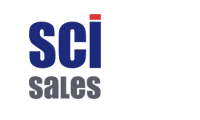Sales are directly affected by time; whether its time of day, day of the week or month of year. Although your company’s experience may not be a replica of those featured within this article, it illustrates the importance of examining trends.
The findings below are based on analysis of website traffic and conversion data over a 5 year period*. Please note that ‘conversion’ refers to a website visitor who requested contact and ‘qualification’ refers to conversions qualified through needs analysis and BANT.
1. The early agent catches the sale.
• The highest level of website activity is during work hours (53% above average).By 9am activity is up 69%, yet often some sales agents are still eating breakfast, checking emails or arranging their desks. Staggering agents’ working days (alternative shifts) to ensure motivated agents are raring to go by 8.30am could be more productive.
• Lunchtime website activity (12pm-2pm) can be up to 90% higher than average and qualification rates increase by 12% just before lunch begins. Staggering sales agent schedules could help avoid an empty office at lunchtime, or even having a different lunch schedule that fits around this time of rich opportunity. Research suggests the faster you respond to a conversion the more likely they are to qualify.
• Conversion rates peak in the evening by up to 15% between 9pm and 11.59pm.The title of this article could have been ‘3 reasons to live in your office’ as research shows that weekday evenings also boast high conversion rates. The sales team is unavailable during these hours but it’s a great time to send out knowledge documents
2. B2B Sales hates Mondays.
• B2B website activity is highest mid-week (Tuesday-Thursday), with traffic peaking at 30% higher than average on Tuesday. High rates of website activity mid-week mean it’s imperative that you have enough sales agents to meet demand. Tuesday may be the best day for launching campaigns, interacting with social media and avoiding staff holidays.
• Conversion rates fall below average on Monday and Friday. Hate Mondays? You’re not alone; many people avoid external interaction on Monday preferring to prioritise inbox demands. Monday is still 21% above average for website activity so blogs or white papers may perform well. Mondays and Fridays are also good days to consider for data gathering or other housekeeping tasks.
• Qualification rates are 4% higher than average from Tuesday to Thursday. It’s important to reinforce the necessity of having enough sales staff mid-week. Responding to a call back request within 5 seconds is 29% more likely to result in a qualification than a call 5mins later.
3. ‘Tis the season to avoid conversion?
• January through to May has the highest conversion rates (February performing a massive 10% higher than average). The beginning of the year has far better conversion rates, this is the most effective time to begin a new campaign as companies often have, or are in the process of planning, new budgets. For high-end, complex sales, beginning to nurture potential clients 3-6 months ahead of this period will increase likelihood of an existing relationship during January to May.
• Conversion rates dropped significantly during the summer months and December (December was 12% below average). Conversion rates fall during the summer, so this is the ideal time for the sales staff holidays or company events. The noticeable dip in December is likely to be the result of companies preparing for the New Year. December could be considered an important month for human interaction, account nurturing and campaign planning.
• Qualification rates are 2% higher than average from June to August. During these summer months qualification rates increased, which may be based on the conversion rates simultaneously falling below average. With less warm leads coming through agents have far more time to ensure they reach the right people and analyse each companies potential.
Timing has a direct impact on your business. Research how your customers interact with your website, sales agents and social media in order to build your schedule around them.
Seasonality is also extremely important in B2B sales! So although this research may not reflect personal experience it’s vital that you plan your year to ensure it reflects your own company trends. Analysis of your monthly sales figures over three years could be a start.


No comments:
Post a Comment